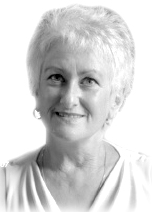
Ask Jacki
Jacqueline Campbell, MA, has been helping elderly people live healthy, independent lives since 1997. If you have questions about how an eldercare consultant can help ensure your aging parents or loved ones are getting the care they need, she's here to help.
Don't see the answer to your question here?
Call today for a free consultation: (416) 698-5497
Q: My mother refuses to have anyone in to help her while I am away at work. She is nearly blind and fiercely independent. What can I do?
A: Your mother treasures her remaining independence, which is understandable. The key is to start with small, non-threatening steps that will open the door to whatever help she needs in the future. Often, an outsider's participation can help.
Invite an eldercare professional over while you are there. Introduce her to your mother as a friend who helps older people take charge of their lives when impairments threaten their safety. An experienced eldercare consultant is adept at reviewing the situation through unobtrusive conversation, and is often able to persuade an independent elderly person to accept a little help here and there. A small start can lead to more trust and acceptance over time.
–Jacki
Q: My 86-year-old aunt has fallen twice. The last time, she ended up being hospitalized for a day for hydration stabilization. As she has no children and lives alone, I have Power of Attorney for Personal Care and for Finance. But I don’t know whether I can act on it – I don't really want to force anything on her. What should I do?
A: Ask your aunt if she remembers that she granted you the Powers of Attorney. If she says she does, ask her if it would be alright for you to exercise the power now as you are very worried about her. If she agrees, then you can act on her behalf.
Even if she does not remember giving you power of attorney, then it is high time you exercised it. If she is resistant to your helping her handle her bills and banking, then take the power of attorney document to the bank, and tell them that the time has come for you to act as her substitute, and they will act accordingly.
An eldercare consultant can visit your aunt with you, provide up-to-date information about what care options are currently available, and get her thoughts and insights. Together you can create a plan customized to your aunt's needs and preferences.
–Jacki
Got a question for Jacki? Email her at jacki@campbellconsulting.ca.
Q: My mother is in the hospital after having a stroke. The hospital discharge planner is now pressing us to sign papers for her admission into a long term care facility, but I am uncertain as to the best facility to apply to. The social worker has given me the names of places with short waiting lists that can accommodate her immediately. What should I do?
A: Think of the current placement as an interim solution, buying you some extra time to make an informed decision on what facility will be best for the both of you in the long run.
The short waiting list facilities are usually ones that are older with less personal space for each resident. However, they do provide consistent, specialized care.
In the meantime, find an eldercare consultant with in-depth knowledge about the facilities in your area, as well as experience with the needs of stroke survivors like your mother. Choosing a long term facility isn't easy, as there are many issues to consider. The consultant will provide you with an objective, professional assessment of the various facilities under consideration, and how well each one would serve your mother's needs.
–Jacki
Q: My father has Alzheimers’ Disease and my mother is his caregiver. He has been showing signs of being aggressive towards her lately and I am concerned for their safety. What should I do?
A: Contact your father’s physician immediately, and make an appointment for them to go and have his behaviour assessed. He may need some medication to keep him comfortable and more calm, thus helping your mother deal with the situation.
It is important to monitor all medications quite closely for all elderly people, and watch for signs of adverse reactions. If you lack knowledge about medication, or have become too close to the situation to accurately judge whether your father's behaviour is being caused by medications, call in an eldercare consultant for an objective review.
The Alzheimer Society of Canada (www.alzheimer.ca) can give you tips on how to manage people suffering from dementia.
–Jacki
Got a question for Jacki? Email her at jacki@campbellconsulting.ca.
Q: Now that my mother has died, I'm worried about my father. He's alone most of the day, and has few social contacts. But with a job and a growing family of my own, I can't be there for him as much as I'd like. I'm worried that something will happen to him. What can I do?
A: Your father's needs can be reviewed carefully, engaging his input, and the necessary support put in place. Those may be meals on wheels, a visiting volunteer from the church, seniors' social service providers giving him a lift to appointments or for shopping, and so on.
–Jacki
Got a question for Jacki? Email her at jacki@campbellconsulting.ca.
